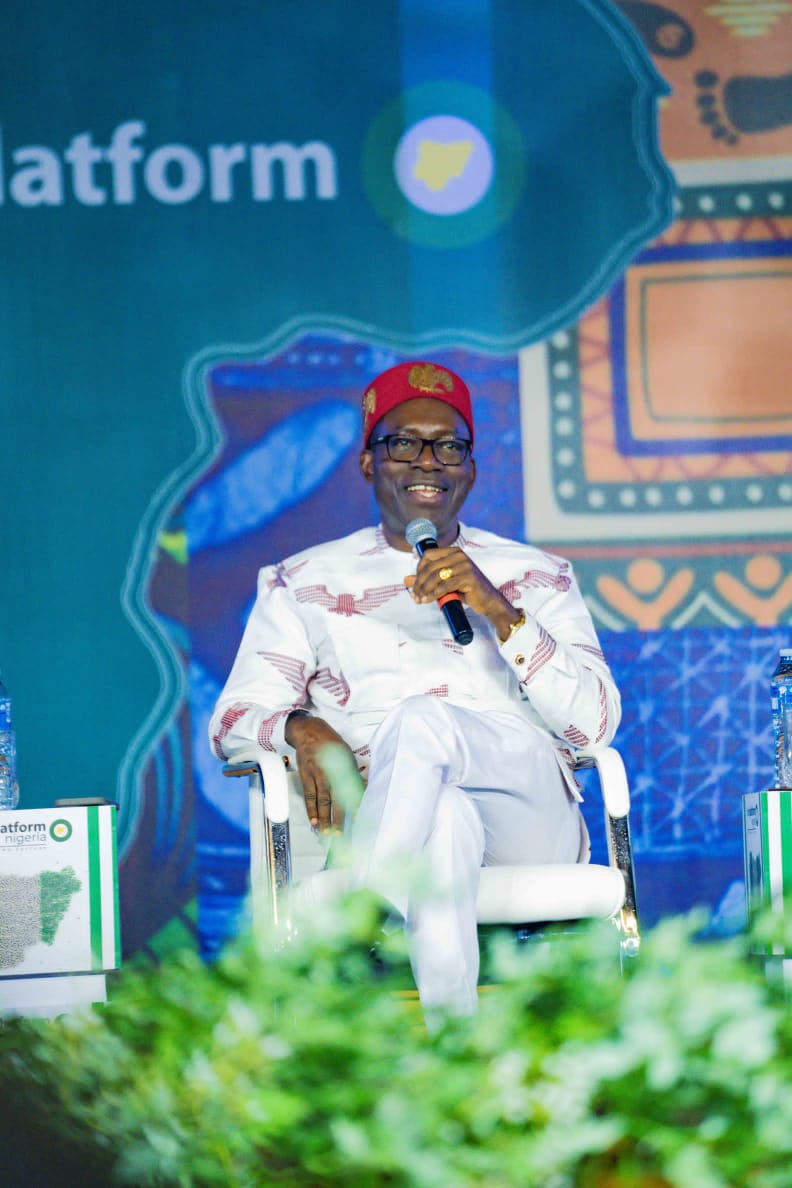Soludo’s New Nigeria: Creating A Sustainable Nation We Never Had
CHRISTIAN ABURIME

When Anambra State Governor Chukwuma Charles Soludo stood before The Platform audience on Democracy Day in Lagos on June 12, 2025, he posed a question that cuts to the heart of Nigeria’s existential conundrum: “Have we had a nation?” The question, while uncomfortable, is necessary as Nigeria grapples with its identity 111 years after amalgamation and 65 years after independence.
The notion of “Rebuilding Our Nation” carries with it a daunting assumption, that we once had a cohesive nation to rebuild. But as Governor Soludo astutely observes, this presumption of nostalgic glory may be our first mistake. How do you rebuild what was never properly built?
Chief Obafemi Awolowo’s 1947 declaration that “Nigeria is not a nation but a mere geographical expression” remains as relevant today as it was 77 years ago. The exchanges between Dr. Nnamdi Azikiwe and Alhaji Ahmadu Bello during the 1959 federal elections illuminate the fundamental challenge: while Zik sought to “forget our differences,” Bello insisted we must “understand our differences” to build unity.
This philosophical chasm has persisted across generations. From Awolowo’s geographical expression to Chinua Achebe’s nostalgic “There was a Country,” Nigeria remains trapped between denial and acceptance of its fragmented reality.
Today, with 371 ethnic groups speaking over 500 languages, Nigeria’s diversity is both its greatest asset and its most persistent challenge. Our national anthem acknowledges this reality: “though tribe and tongue may differ, in brotherhood we stand.” Yet the anthem’s aspirational prayer in its final stanza, to “build a nation where no one is oppressed”, remains unfulfilled after six decades.
That’s why Governor Soludo’s framework of two liberation epochs is particularly illuminating. The first 46 years after amalgamation saw purposeful organisation leading to independence from colonial rule. Our founding fathers understood their mission and executed it with remarkable success.
The second epoch, our 65 years of independence, tells a different story. This period, which should have been our “liberation from underdevelopment,” has been characterised by what Governor Soludo calls “chequered experimentations” lacking the purposeful organisation that defined our anti-colonial struggle.
The crucial difference lies in intentionality. While our independence struggle had clear goals and organised leadership, our post-independence nation-building has been largely accidental, reactive, and fragmented.
Perhaps the most profound insight in Governor Soludo’s intervention at The Platform is his suggested reframing: from “Rebuilding Our Nation” to “Creating a Sustainable Nigerian Nation.” This shift in morphological construct represents a fundamental change in semantic import and discourse approach: acknowledging that nation-building in Nigeria is not about restoration but creation.
The National Party of Nigeria’s 1978 slogan “One Nation, One Destiny” was not just political rhetoric; it was a recognition that Nigerian nationhood requires conscious effort and intentional design. We cannot stumble into nationhood; we must architect it.
What makes Prof. Soludo’s thesis particularly timely is his call for this to become “the urgent everyday conversation by all Nigerians.” Nation-building cannot be left to politicians or intellectuals alone; it requires the active participation of every citizen in reimagining what Nigeria can become.
Therefore, the challenge is immense. How do we forge unity among 371 ethnic groups without erasing their distinct identities? How do we create shared national values while respecting religious and cultural differences? How do we build institutions that serve all Nigerians equitably?
Creating a sustainable Nigerian nation requires what our post-independence leadership has largely lacked: purpose-driven organisations with clear intent to defeat underdevelopment and foster national unity. It requires what Governor Soludo calls “new Nigerians”: citizens who transcend ethnic and religious divisions to embrace a shared Nigerian identity.
This is not about ignoring our differences, as Ahmadu Bello wisely warned, but about building bridges across those differences. It is about creating institutions that work for everyone, developing an economy that provides opportunities for all, and promoting a culture of mutual respect and shared responsibility.
While Nigeria stands at this critical juncture in its democratic progression, Governor Soludo’s question echoes with increasing urgency: Have we had a nation? The answer may be uncomfortable, but it is also liberating. If we have never truly had a nation, then we are not rebuilding; we are creating. And in creation lies infinite possibility.
So, the national conversation has started and it continues. The question is: Are we ready to move beyond Awolowo’s geographical expression toward the sustainable nation our anthem envisions? Let this be starters of food for thought in our hunger for a new Nigeria










